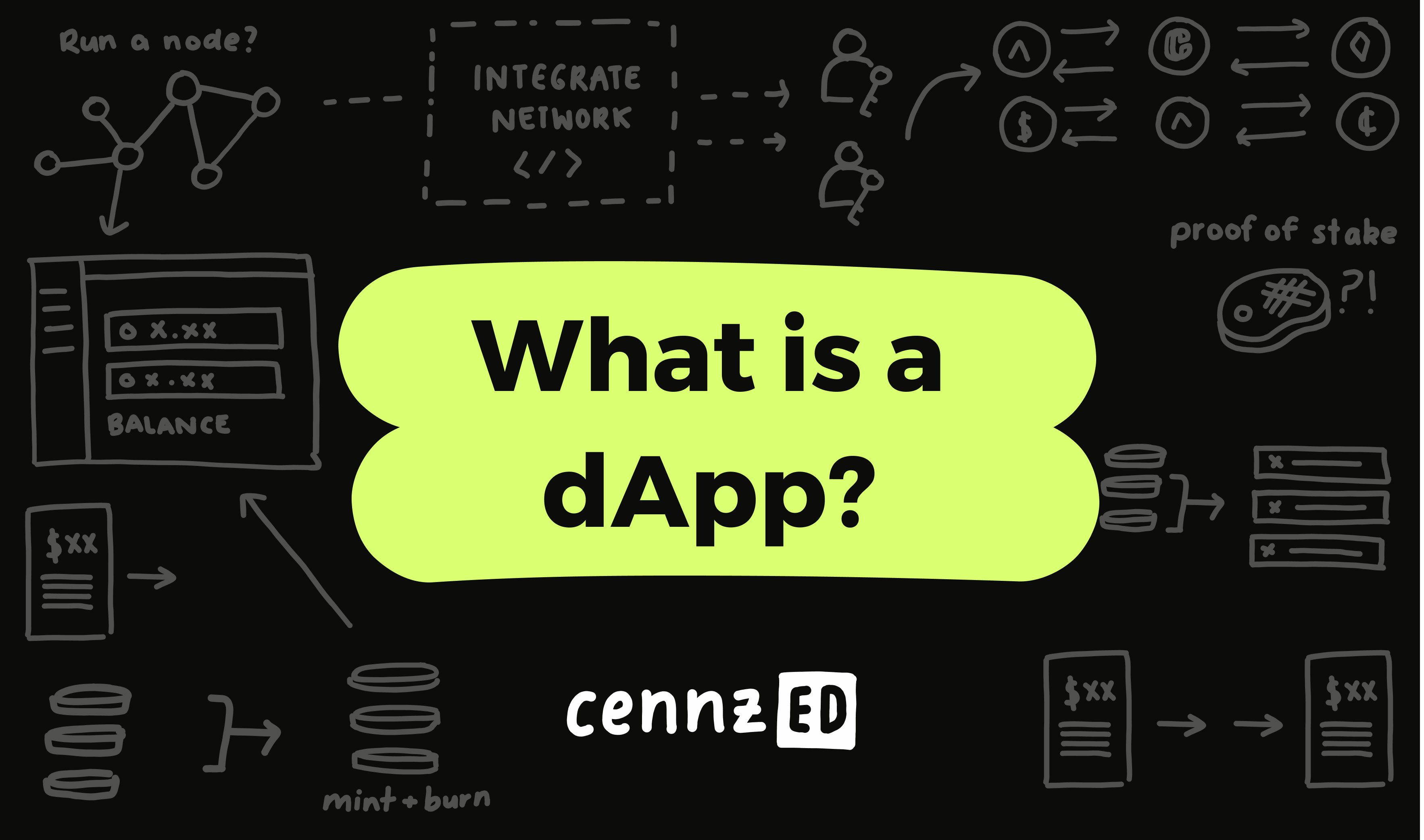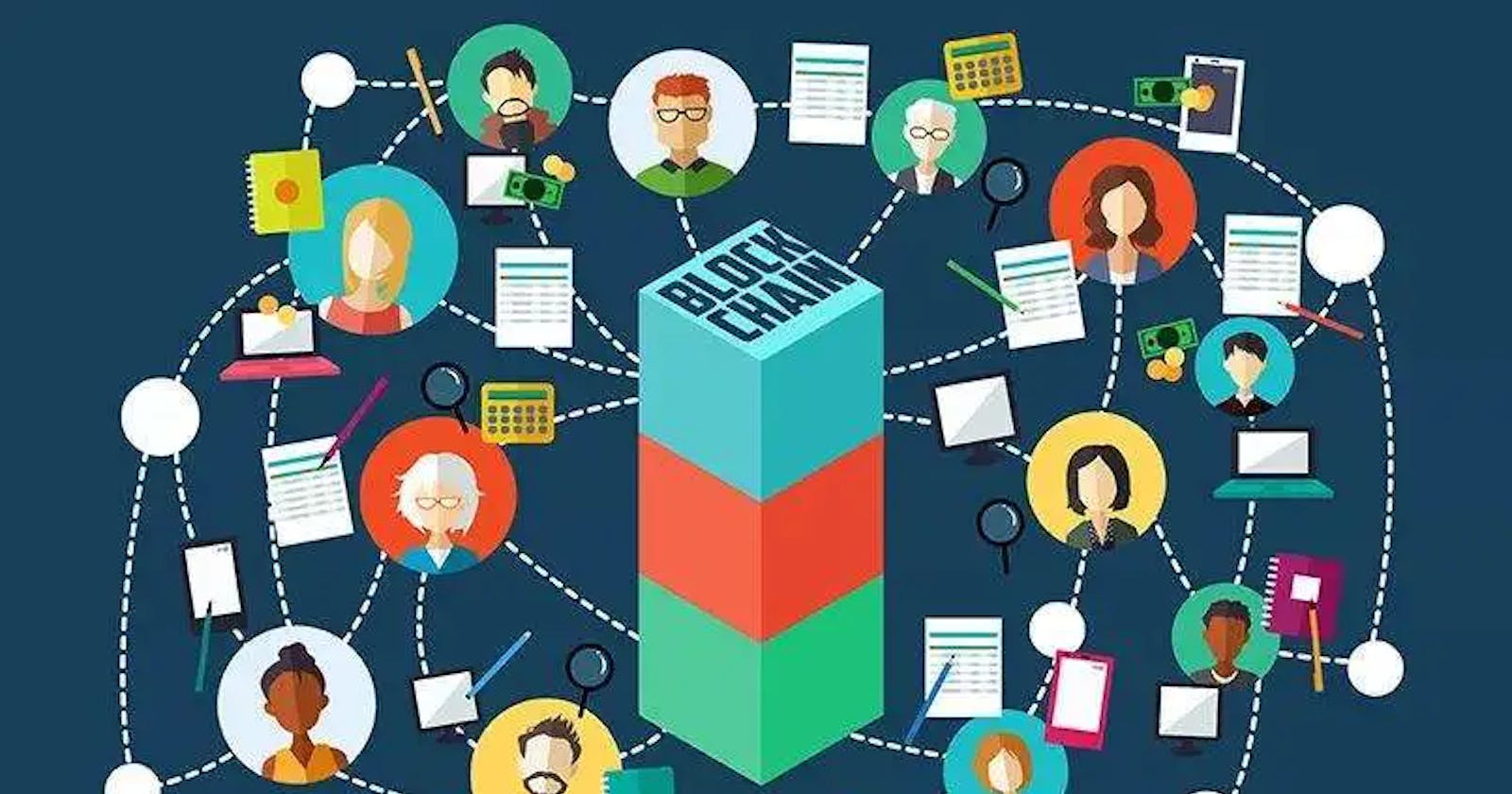Introduction
A dapp is a decentralized application built on top of an existing network. Decentralized applications are applications that run on the Ethereum blockchain, like Ethereum or EOS. The benefits of using a dapp over an app store is that you don't have to trust anyone - you can verify everything for yourself and your data is always private. This means Dapps have many advantages over traditional online stores like Apple App Store and Google Play Store!
What is a DApp?
 A decentralized application or DApp serves some particular purpose to its users. Unlike an app, a DApp has no central authority governing it. Such applications are not controlled by any single entity, and are run on peer-to-peer networks.
A decentralized application or DApp serves some particular purpose to its users. Unlike an app, a DApp has no central authority governing it. Such applications are not controlled by any single entity, and are run on peer-to-peer networks.
The best way to understand the difference between an app and a DApp is by comparing them with the traditional centralized business model:
What are the key requirements for an application to be considered a DApp?
To be considered a DApp, an application must meet the following criteria:
It must be open source. This means that anyone can view and analyze the code of your application, and it's not hidden behind a paywall or restricted by copyright.
It must be decentralized. In other words, no one person owns or controls your platform or its data—instead, everyone has equal access to it without having to pay anything extra for their participation in the network (in some ways this is similar to how BitTorrent works).
It uses tokens/coins as part of its functionality: if you want people who use your product to feel like they're buying something from you instead of just using it for free then this is important! For example Steemit has its own cryptocurrency called STEEM; Ethereum also uses Ether as its currency; Bitcoin Cash uses BCH as well... etcetera ad infinitum (but seriously though - do all these coins need their own currencies? What about Bitcoin?).
How is it different from normal apps?
DApps are decentralized, meaning they run on peer-to-peer networks. They are open source and not controlled by any single entity. DApps do not require a central server to run, so there is no risk of downtime or other problems that can affect the performance of your app. The blockchain provides the security necessary for trustless computing (the ability to trust others). Smart contracts allow for automated operations such as payment or transfer of ownership when certain conditions are met; these contracts also allow for complex computations between multiple parties without requiring them all to agree on what happens next before it does so.
Authority on the DApp
A Decentralized Application or DApp serves some particular purpose to its users. Unlike an app, a DApp has no central authority governing it. Such applications are not controlled by any single entity, and are run on peer-to-peer networks.
A decentralized application is an open source software project that relies on the network of participants running the program (known as nodes) instead of having a single point of failure like centralized servers do. This makes them more resilient under attack because there are multiple nodes running at any given time so if one goes down then another can take over its functions until all nodes have been restored again.
Conclusion
DApps are becoming increasingly popular. The value of blockchain technology has made DApps an attractive investment for companies and individuals alike. While many have only heard of Ethereum, others do not even know that there are other platforms out there. This article will explore the world of DApps and how they work on Ethereum-based platforms like Mist or MetaMask in more detail than what might be found in other sources.
